Discovering Socialist Living in Post Soviet Dresden
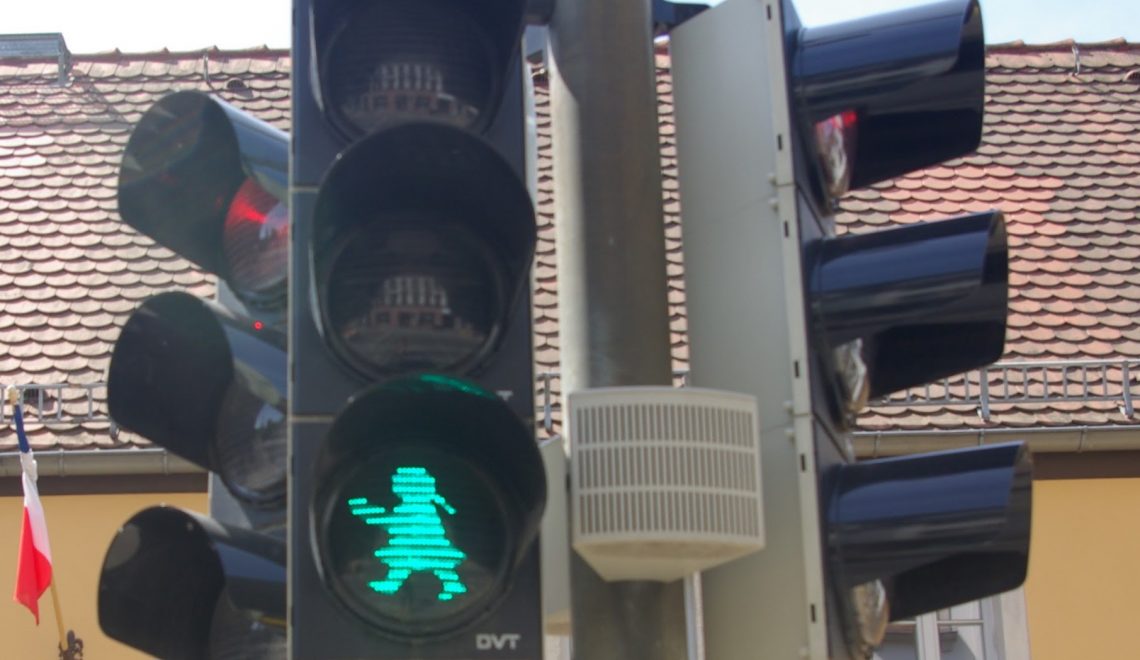
What an embarrassing display! I’m standing at a busy intersection with my sign, trying to get a stranger to stop and pick me up and not one car will look at me as they drive by. I had just walked 7 miles south out of Berlin so to save myself 2 euros and however many cents for a fare card. I’m one city into my odyssey around Germany and there I was, standing under a hot June sun for what felt like an eternity. I swear, I tried everything: dancing, waving my sign, hopping up & down and most importantly, I glued a big fat smile on my face, yet the passing cars shed not a glance… I was on my way to Dresden, where David, my host from Berlin, told me I’d be in for a surprise if I managed to get in touch with his best friend who lives there.
The two prior nights I spent in Berlin was quite a contrast to the seven months I’d lived one street away in the same neighborhood. My previous impression of Berlin was shaped by English speaking friends & roommates with whom, by choice or by circumstance, I spent most of my time. My life then, in what I thought was Germany, was an extension of my previous way of living in the US. I saw a fascinating culture over those two nights in that apartment than my entire previous stay. Their apartment was not built nor arranged in any way unique from the previous, it was more how they lived that stuck out to me. In the kitchen, the line between personal and shared was blurred in a manner most to me. The fridge had a dedicated row for vegan milk that belonged to no-one and everyone at the same time. The same applied to everything from the tea & muesli and shelves. The willingness to contribute was also noticed; ever since David’s roommate converted the apartment of six into fine barista coffee addicts, they drink loads of coffee, and so David prepared me and the other roommates a fancy coffee while another roommate divvied up a cake for everyone that she’d baked earlier. I saw the sparks of an interconnectedness between Germans that had earlier remained unnoticed.
Over the course of my stay in Berlin, I started to see hints of a different way of living. What did David mean I’d be in for a surprise in Dresden?
Still Standing on the Road…
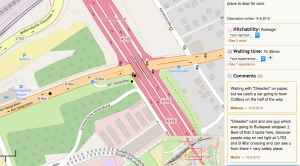
Using a site like HikiWiki I could see other people’s hitchhiking experiences on a map.
Like with most of life’s lessons, failure is the best teacher. Hitchhiking is a lottery. In the end, it’s always the driver’s decision whether to stop for you. In my case, I thought I was doing everything right: I found a spot where other people already hitchhiked from and I was standing in a spot where cars had room to stop. All the prerequisites were there, I just couldn’t get their attention long enough to… Stop.
I failed to do so over a period of 30 minutes… Then 60… Then 90… Then ENOUGH!!!
What an embarrassing display to an embarrassing start! I eventually bit the bullet and paid twice the normal fare for a bus to Dresden (don’t ask me how I found the bus, it just happened to be leaving in 10 minutes after I walked into the airport parking lot looking for WiFi). I was seething in my failure yet relieved to finally be moving in the right direction.
This entire time I was aiming for Dresden, still uncertain if David’s friend Lilli would get back to me about a place to stay. You never how it’ll go with relying on friends of people you just met, to have a place to stay. They could be on vacation, their spare room could be occupied with other guests, or they might be having a drama period in their life and can’t host. Not today! Thanks to the buses WiFi I learned I’d have the guest room free to myself. Lilli wrote back to me with directions to her house on the outskirts of Dresden. Better to pay for a bus ticket then a hotel room. The question lurking in my mind was, what kind of place is this if I’ll have a free guest room to myself?
A Familiar Face to an Unfamiliar City
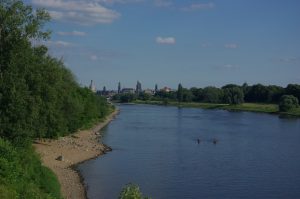
A walk down the Elba river which passes through Hamburg before flowing into the ocean a little further.
After an extra hour of traffic, I made it to Dresden. The sun was making it’s long and arduous descent down the glistening summer sky. Still too cheap to pay for a street tram, I plotted my walk along the Elba river out of Dresden Central Station.
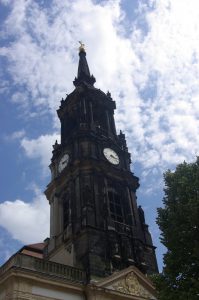 The first thing I noticed was the black charred building facades. Dresden was a city notoriously napalmed less than three months before Germany’s surrender in the second world war; in four raids over three days, over 1,200 bombers dropped almost 4,000 tons of high-explosive bombs and incendiary devices on the city. Even with that knowledge it still took me longer than it should’ve to realize, “Holy cow! The city is still black as coal because of that!”
The first thing I noticed was the black charred building facades. Dresden was a city notoriously napalmed less than three months before Germany’s surrender in the second world war; in four raids over three days, over 1,200 bombers dropped almost 4,000 tons of high-explosive bombs and incendiary devices on the city. Even with that knowledge it still took me longer than it should’ve to realize, “Holy cow! The city is still black as coal because of that!”
Furthermore, like Berlin and Leipzig, Dresden was held down under the heavy iron curtain of communist Russia until 1989. In the thirty-five plus years since the fall of the Berlin Wall, it’s not hard to see the result of German Reunification, when West Germany came in to help bring it’s dwarfed brethren up-to-speed. Simultaneously, it’s obvious that the reunification process is still a long ways from complete. The architecture of Dresden feels eerily familiar; newly painted housing blocks cover the dreary grey concrete that defined the landscape of Soviet living, that still dominates even my neighborhood in Vilnius, Lithuania. Communism’s heavy past shone through in the architecture and the dilapidated state of certain buildings, while other aspects were purposefully preserved.
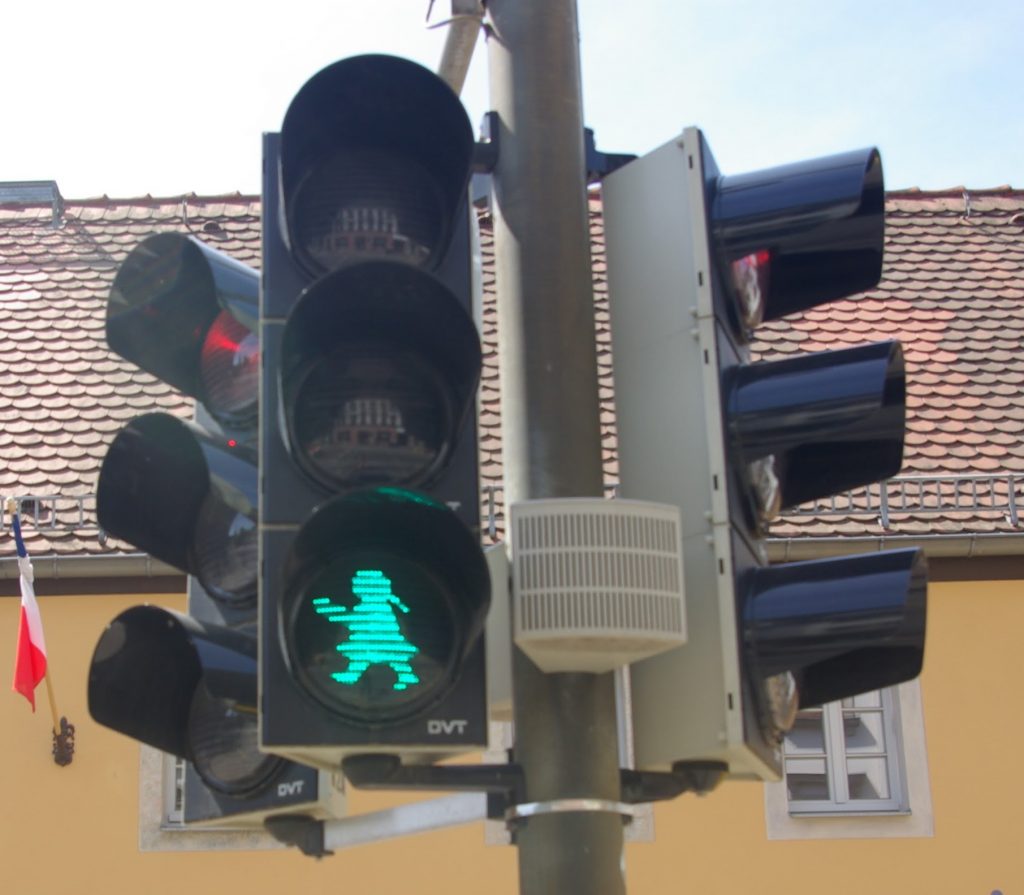
The Unfamiliar Part
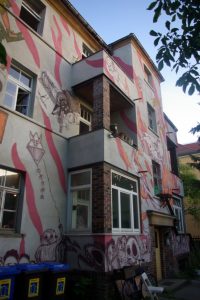 The house was a work of art, literally, on the outside and figuratively on the inside. Lilli’s roommate, Holger, met me in the stairway, which was a dark drab concrete corridor the three floors (four if counting the basement). The entrance to the first-floor hallway was ransacked with shoes belonging to anyone and everyone. We walked through the hallway to a door with a “Vegan Kitchen” sign on it where Holger introduced me to six other housemates going about everyday life in the kitchen. From the start, he explained to me if I were to prepare anything non-vegan that there is a kitchen on the third floor designated for that.
The house was a work of art, literally, on the outside and figuratively on the inside. Lilli’s roommate, Holger, met me in the stairway, which was a dark drab concrete corridor the three floors (four if counting the basement). The entrance to the first-floor hallway was ransacked with shoes belonging to anyone and everyone. We walked through the hallway to a door with a “Vegan Kitchen” sign on it where Holger introduced me to six other housemates going about everyday life in the kitchen. From the start, he explained to me if I were to prepare anything non-vegan that there is a kitchen on the third floor designated for that.
Looking around the kitchen I felt like I’d wandered into a school kitchen where a large family had taken over. There was a big open box in the center of the kitchen against a large wooden beam, full of cabbage, kohlrabi, leeks and whatever else was in season. Nearby lie an industrial-sized transparent plastic bag full of tiny bread rolls. Yet more vegetables occupied much of the surface area of the large wooden dining table that almost stretched the length of the large room. Nestled under a bunch of onions lie an exposed chunk of Kohlrabi lying on a cutting board accompanied by a knife. There lived even a family of houseflies who took full advantage of the excess food that was left for them. On the side of the room where they kept their bins sorted papers, plastics, glasses, and cans, they even found a 2-kilogram block of chocolate, still, half wrapped in the blank white wrapper it was found in.
Holger explained to me I could take, use and eat what I wanted while pointing out the shelves beside the kitchen where a plethora of teas and everything alike resided. What I was rapidly realizing was that this is a commune.
At the time there were nineteen adults and one 7-year were living here and as you can imagine there are a number of rules that need to exist to make this work. I didn’t rush the topic, first I had to solve my hunger and try learning these names, Holger, Phil, Neil, (blank), (blank)… Darnit!
All I had with me to eat was a bread, cucumbers, cream cheese and Worcestershire sauce. Was I allowed to eat cream cheese here?! I did anyways. During dinner, Theo, the youngin’ of the house, along with Phil came by to try and entice Holger and I into a game of soccer. Holger, the experienced, declined. I agreed.
After dinner, I joined them along with Theo’s mother for a made-up game of keep away in the backyard. The yard was a microcosmic wilderness to wander through: pear trees dotted the rectangular plot which also housed a vegetable patch, a swimming pool a short distance behind it and a tractor-trailer, parked in the dark forest corner furthest away from the house. We ran back-and-forth barefoot through a boundless grassy patch for a while until we grown-ups lost interest. During the intermission, I walked past the pool to a chair, suspended by a rope to a tightrope, tied across two trees high above. Theo walked over, he saw there was just enough room for him on the wooden plank of a chair I was sitting on, and he joined me.
It always amazes me the fearlessness of little kids when they are curious. Theo begins asking me “Where do you come from?” For me, that’s a messy question to answer without more specificity. I end up getting a glimpse into this boy’s life; he’s moving since his earliest memories, from Ösnabruck to Hamburg where his father worked as a cook and since last year, this place has been home. How different some people grow up compared to others. I lived in one house, in the same neighborhood, until I turned eighteen and there was a seven-year-old having lived in several and now living in a shared house.
…
We adults eventually got tricked into playing another game, but this time no-rules soccer. Afterwards, I decided on a walk around the neighborhood. The gate in the back of the yard opened into a massive stadium-and-a-half wide long field with the world’s tiniest stream going through the center exiting into the Elbe river. Aside from the house, there was nothing special about this place. It was the same inconspicuous post-Soviet neighborhood with a four-story children’s slide in a park on the other side.
I came back from a stroll around the neighborhood and met several more housemates who were concocting a large meal from the ingredients readily available. The prevailing logic was, make an elephant-load of food and whoever’s hungry, eats. That night I went to bed with a lot on my mind. I felt a strange tingle of happiness learning that people can live like this. Holger told me the house was purchased through micro-finances and donations; they weren’t going anywhere anytime soon…
…
Coming from a way of life in the United States where each of the building’s inhabitants lived their own disconnected lives, I was fascinated by this interconnected way of life juxtaposing against my urban American upbringing. I can’t know that everyone living there was best friends with one another, though, at the very least, everyone knew each other on well enough terms to stay living there.
I went out to see Dresden the next day in all of its post-napalmed glory. Though the city has it’s character and unique scene in the Neustadt with its graffitied architecture and hidden alley passages inhabited with restaurants and neat shops, I had a realization: travel’s not just about the pretty streets and stores that make up the center but about discovering the different lives and perspectives that make up that city’s inhabitants. The cool colors of this city sure add to it though!

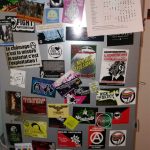
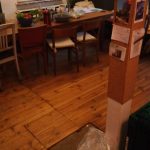
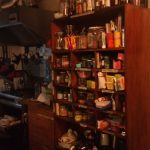
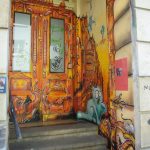
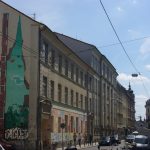
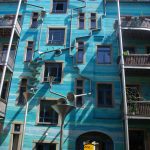
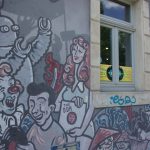
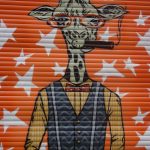
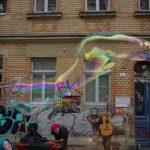
Do you have more photos to share of the city still covered with the black coating from the bombinh. Very interesting stuff Marius. Loved the dinner experience you described. Your writing is great. Keep it up